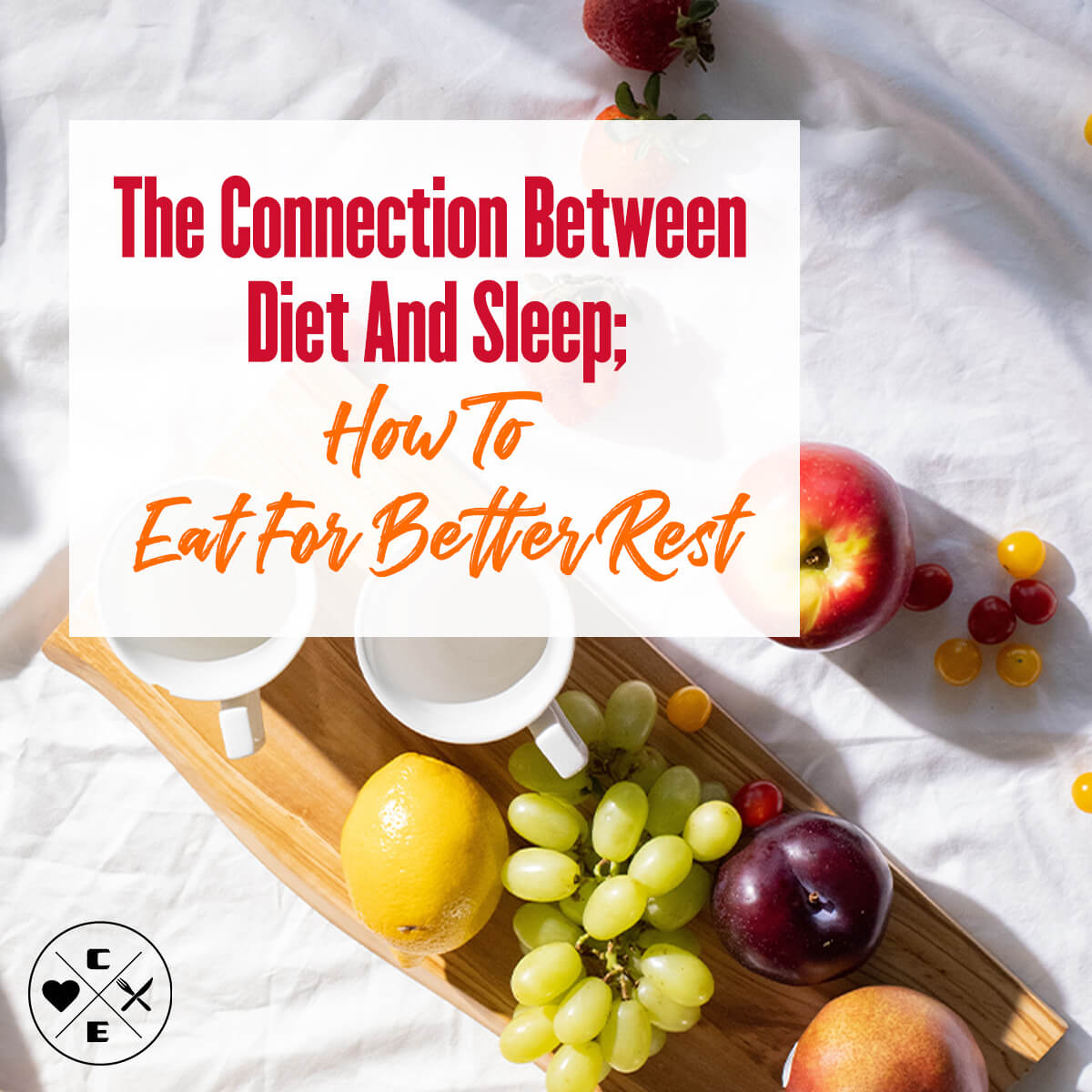
The Connection Between Diet And Sleep And How To Eat For Better Rest
Jason Nista
Healthy Lifestyle
|
Sleep
5 minute read
The Connection Between Diet And Sleep And How To Eat For Better Rest
Sleep is one of the most important aspects of our daily lives, playing a crucial role in maintaining overall health and well-being. A good night's sleep is necessary for both physical and mental restoration. However, getting a good night's sleep can sometimes prove difficult, especially if you don't have the right diet. In this article, we will be exploring the connection between diet and sleep and how to eat for better rest.
The Connection Between Diet and Sleep And How To Eat For Better Rest
Diet plays a critical role in regulating sleep patterns, with certain foods and nutrients affecting sleep quality. Food acts as a natural sedative, with the right combination of foods providing a soothing effect that can lead to a better night's rest.
The foods we consume have an impact on our sleep patterns, as they can cause an increase or decrease in our energy levels. For example, foods high in caffeine and sugar can provide a boost of energy, leading to a restless night. On the other hand, foods that are high in magnesium, calcium, and potassium can help regulate sleep patterns and promote better rest.
Certain foods and nutrients have been shown to have a positive impact on sleep quality. Tryptophan, an amino acid found in many foods, has been found to promote sleep and reduce insomnia [*]. Furthermore, foods high in magnesium, calcium, and potassium are known to regulate sleep patterns, leading to a better night's rest [*].
The timing and portion of the foods you eat can also impact sleep quality. Eating a large, heavy meal close to bedtime can lead to digestive discomfort, resulting in a restless night. In addition, consuming caffeine and sugar in the evenings should be avoided, as these can disrupt sleep patterns.
What to Eat for Better Sleep
To improve the quality of your sleep, you should focus on incorporating certain foods and nutrients into your diet. These can help regulate sleep patterns, promoting a better night's rest.
Carbohydrates are an essential component of a sleep-promoting diet. They have been shown to increase the levels of tryptophan in the body, which in turn can lead to better sleep [*]. Foods high in carbohydrates include bread, pasta, and rice.
Consuming foods rich in magnesium, calcium, and potassium can regulate sleep patterns, resulting in improved sleep quality [*]. Examples of these foods include bananas, spinach, almonds, and yogurt.
Caffeine and sugar can have a disruptive effect on sleep patterns, making it difficult to fall asleep or leading to restless nights. It is recommended to avoid consuming caffeine and sugar in the evenings and instead opt for sleep-promoting foods.
How to Make Dietary Changes for Better Sleep
Making dietary changes to improve your sleep can be a challenge, but with the right approach, it can be done using tips such as:
Planning Ahead and Making Healthy Food Choices
To improve your sleep, it is essential to plan ahead and make healthy food choices throughout the day. This means substituting sleep-promoting foods for caffeine and sugar in the evening.
Avoiding Heavy, Spicy, or Sugary Foods Before Bed
Heavy, spicy, or sugary foods should be avoided before bedtime, as they can lead to digestive discomfort and restlessness. Instead, opt for light, easily digestible foods that promote relaxation, such as a bowl of oatmeal or a slice of whole-grain toast with almond butter.
Incorporating Sleep-Promoting Foods into Your Evening Routine
Incorporating sleep-promoting foods into your evening routine can be a simple yet effective way to improve your sleep. A bedtime snack of a banana and almond milk or a cup of chamomile tea can be a great way to wind down and prepare for sleep.
Conclusion
Diet and sleep are intricately linked, with the right diet playing a crucial role in promoting better sleep. By incorporating sleep-promoting foods and avoiding disruptive foods and beverages, you can improve the quality of your sleep and achieve better overall health and well-being. Making small dietary changes can have a significant impact on the quality of your sleep, so don't hesitate to make positive changes for a better night's rest.
FAQs
Why is eating a sensible diet and getting enough sleep important?
Eating a balanced diet and getting adequate sleep are crucial for overall health and well-being as they provide the body with the necessary nutrients and rest to function properly and maintain physical and mental health.
Can dieting cause sleep problems?
Yes, dieting and restrictive eating patterns can cause sleep problems by altering hormones, disrupting hunger cues, and leading to increased anxiety and stress. Additionally, specific diets high in sugar and caffeine can also disrupt sleep.
What diet changes help sleep?
Diet changes such as consuming a balanced diet that is rich in magnesium, calcium, and potassium, while avoiding caffeine and sugar before bedtime, can help improve sleep. Incorporating sleep-promoting foods like complex carbohydrates, tryptophan-rich foods, and herbal teas can also promote sleep.
Related Articles
Managing Feelings And Stages of Grief and Loss
9 minute read



